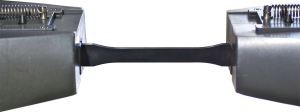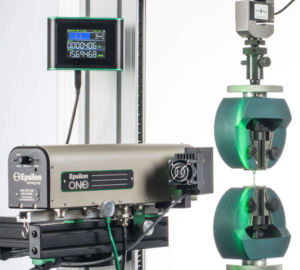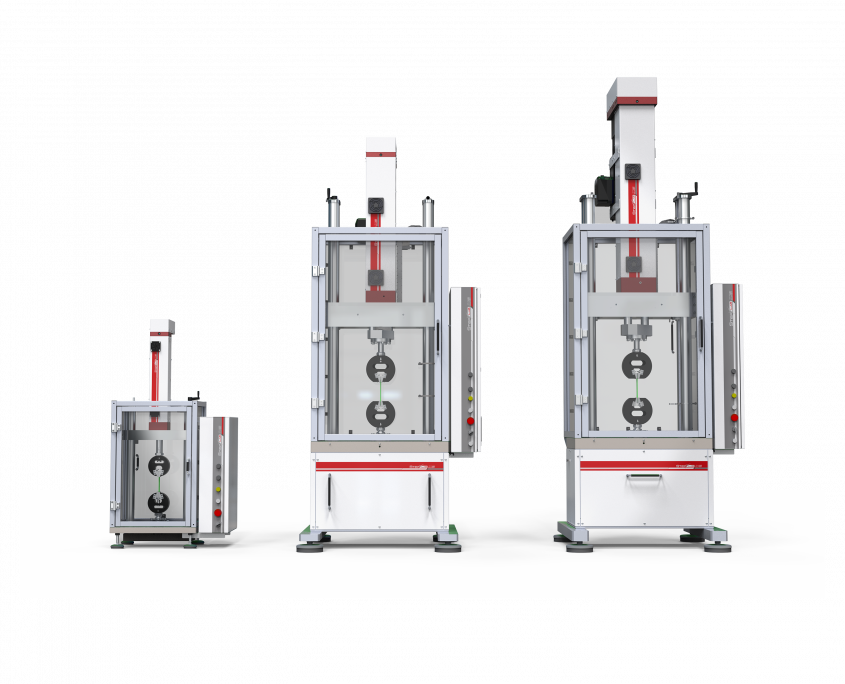At STEP Lab, our primary objective is to manufacture advanced testing machines capable of conducting tests in accordance with various standards for a wide range of materials, including plastics. Our technology guarantees superior performance and reliability, seamlessly aligning with international standards such as ISO 527-2. We prioritize meeting your materials testing requirements with the utmost precision and compliance.
WHAT IS ISO 527-2?
ISO 527-2 is an international standard specifically designed for assessing the tensile properties of molding and extrusion plastics. It is crucial for evaluating the performance characteristics of these materials.
WHAT DOES ISO 527-2 MEASURE?
ISO 527-2 measures various tensile properties, these are the most common:
- Tensile strength: the force that can be applied to a material before it breaks.
- Tensile modulus: how much a material can deform in response to stress before it yields.
- Elongation: the ratio of the increase in gauge length after a break to the original gauge length, as measured by the frame’s crosshead.
- Strain: the increase in length per unit original length of the gauge that is measured by a strain gauge.
- Poisson’s Ratio: quantifies the correlation between the elongation and thinning of a material as it undergoes stretching.
ISO 527-2 – HOW TO PERFORM A TEST
In the ISO 527-2 testing procedure, a universal testing machine is employed to systematically apply a controlled tensile force to a standardized sample or specimen of the material under evaluation. The testing machine is equipped with a crosshead, which moves at a specified rate, typically ranging from 1 to 500 mm/min. As the machine exerts tension on the specimen, various properties of the material are measured, including its response to stress, strain, and deformation. The test continues until the specimen either yields, indicating a permanent deformation, or reaches its breaking point. Throughout the process, data such as force, elongation, and other relevant parameters are collected and analyzed to characterize the tensile properties of the material being tested. This method provides valuable insights into the material’s behavior under different loading conditions and helps assess its mechanical performance.
ISO 527 – THE 5 STANDARDS
The ISO 527 series comprises five standards, where ISO 527-1 serves as the overarching principle referenced by ISO 527-2 through ISO 527-5. ISO 527-1 establishes the fundamental guidelines for evaluating the tensile properties of plastic materials under specified conditions. The standard delineates various geometries for testing, providing a comprehensive framework. It is essential to select the specific ISO 527 standard that corresponds to the material in question. The five standards within the ISO 527 series are as follows:
- ISO 527-1: Plastics – Determination of Tensile Properties
- ISO 527-2: Test conditions for moulding and extrusion plastics
- ISO 527-3: Test conditions for films and sheets
- ISO 527-4: Test conditions for isotropic and orthotropic fibre-reinforced plastic composites
- ISO 527-5: Test conditions for unidirectional fibre-reinforced plastic composites
ISO 527-2 – EXTENSOMETERS
To achieve optimal accuracy and repeatability in measurements, consider incorporating an Extensometer into the testing system. Optical (non-contact) Epsilon extensometers are particularly well-suited for elastomeric materials, especially in cases involving fragile specimens or climatic chamber testing. They offer the added advantage of reducing measurement variability attributed to operator influence, thus enhancing efficiency, particularly in high-throughput laboratory settings.
We are official distributor for Epsilon products.
TESTING MACHINES FOR ISO 527-2
A testing machine for ISO 527-2 commonly applies a force of either 5 kN or 10 kN (equivalent to 1125 or 2250 lbf), with these values being the most prevalent. However, in cases where plastics are reinforced, and the strength of composites is heightened, the force can be elevated to 30 kN or 50 kN.
STEP Lab’s EA and UD Series testing machines are perfect for conducting your test in accordance to ISO 527-2.
Our dynamic and fatigue testing machines is a versatile solution for conducting tests that require high accuracy and speed in both force and position control.
-
- Dynamic loads range up to 200kN
- Zero maintenance and easy installation
- Low energy consuming
- Highly reliable test





